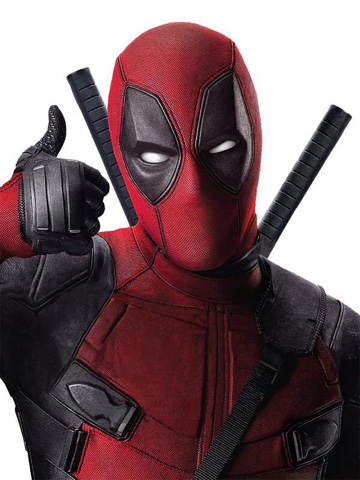5) Ben Affleck- Best Director (2013)
A very strange entry to kick off our list here. In 2013, despite his film Argo picking up the award for Best Picture at the 85th Academy Awards, Ben Affleck was conspicuous by his absence in the Best Director category. This is an extremely rare and bamboozling occurrence (I believe you would have to look back to 1989's "Driving Miss Daisy" to find the only other occasion that this has happened since the Second World War) and seems completely against common logic. How could a man, at the helm of what was considered the finest film of that year, not even be considered for an award in this category in his own right? Am I missing something here? A very strange decision on the Academy's part and one which, in hindsight, I'm sure they would want to correct, despite Ang Lee being very deserving of his victory in this particular year for the cinematic achievements he accomplished with "Life of Pi".
4) Leonardo Di Caprio- Best Supporting Actor (2013)
Ah, poor Leo. Another entry coming from the Seth McFarlane hosted ceremony in 2013, Leo failed to get nominated for his villainous portrayal of plantation owner Calvin Candie in Quentin Tarrintino's "Django Unchained", despite his cast mate Christoph Waltz picking up the award on the night. Candie is probably Di Caprio's most unique performance to date. Charismatic, sinister and sleazy, Candie is the perfect foil to Jamie Foxx's honourable Django. Ever the protagonist, the fact that top-tier leading man managed to pull off being so utterly detestable is a testament to how far he's come since his days playing poor boys on sinking ships. Indeed, one of the film's most memorable moments where Leo cuts his hand on a glass during a particularly heated conversation with Django and proceeds to wipe his hand on Broomhilda's face was not in the original script, and is completely improvised by Di Caprio himself. A very disappointing omission, but hopefully the 41 year old breaks his Oscar drought this Sunday and takes home the Best Actor trophy for his performance in "The Revenant".
3) Uma Thurman- Best Actress (2004, 2005)
To start off, I'm going to put my cards on the table: Kill Bill is my personal favourite film of all time. From its riveting action to its captivating script to its colourful visuals, this modern classic depicting Thurman's "Bride's" roaring rampage of revenge failed to be nominated for a single Academy Award, despite being eligible for nominations at two different ceremonies because of its split release. To me, this is absolutely outrageous and I feel personally affronted by this travesty of justice. If I had to pick just one category that Kill Bill should have been nominated in (believe me, I could cite more), I would argue that it should have been Uma Thurman for Best Actress. While putting herself through considerable physical strain, Thurman gives an exceptionally entertaining performance and delivers each line of dialogue in a very deliberate and unique manner. The film hinges on the strength of her performance, and her work should have been acknowledged. A problem evidenced by Charlize Theron not being nominated for her performance in this year's "Mad Max: Fury Road", action stars need to get their credit when it's due, especially when you give a permanent as iconic as Thurman's. Not since Sigourney Weaver's role in "Aliens" has the Academy properly serviced action-movie actresses, and this is a problem they must address. Amongst other things, of course...
2) Andy Serkis- Best Supporting Actor (2003)
Speaking of iconic performances, Andy Serkis' Gollum is perhaps the most recognisable film character this side of Y2K. Known as the "Godfather of Motion Capture", an accolade he has earned by being the most high-profile actor to perfect the art, Serkis' work too often goes unappreciated due to its unconventional nature. Yet, it could be argued that motion capture performances require more from the actors than a typical live-action portrayal, due to the challenging nature of having to portray largely inhuman characters. On top of this, in the case of "Lord of the Rings: The Two Towers", Serkis essentially has to play two separate characters: that of Smeagol and that of Gollum. Taking all of this into account (the challenging nature of motion capture, the duality of the role and the unique ability required to pull off such a performance) it is really surprising in hindsight that the "Planet of the Apes" star was overlooked for a nomination, especially when the category wasn't particularly competitive in this year. Serkis is one of the most underrated actors of our generation, and this is just the most infamous example of his work being overlooked.
1) The Dark Knight- Best Picture (2009)
Do you remember "The Reader"? No, neither do I. So riddle me this, why was this largely forgettable film nominated for a Best Picture nod over Christopher Nolan's "The Dark Knight"? The Dark Knight proved that comic-book movies could be of an extremely high quality while still being entertaining and close to its source material. It was a film that turned an entire genre on its head, and was heralded by both critics and audiences alike upon its release. A film that has become a true modern-day classic, with its smart plot and enigmatic characters, the failure to nominate The Dark Knight in 2009 led to the Academy making the decision to increase the nominations in this category from 5 to 10, acknowledging the mistake they had made and allowing them in the future to acknowledge more films as worthy of contendership for the top prize. It looks fantastic. The acting, particularly from Heath Ledger, is stellar. The score is seamless. The action is incredible. Despite not being a typical "Oscar film", The Dark Knight will forever be remembered as the true Best Picture of 2008 and the Academy's failure to nominate it was a mistake it may never live down.







